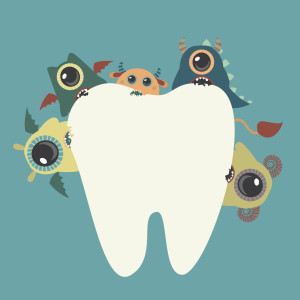 In the age of homeopathic remedies and less-than-comprehensive insurance packages, it may be tempting to ignore your toothache away. But if you have a seriously infected tooth, it can lead to major complications. Just ask the scores of Londoners back in the 1600s who died from infected teeth, making it the sixth leading cause of death back then. And if you think that’s so 400 years ago, take note of a 2009 study by the Pew Charitable Trusts that found annually more than 830,000 emergency room visits were for preventable (not accident related) dental issues.
In the age of homeopathic remedies and less-than-comprehensive insurance packages, it may be tempting to ignore your toothache away. But if you have a seriously infected tooth, it can lead to major complications. Just ask the scores of Londoners back in the 1600s who died from infected teeth, making it the sixth leading cause of death back then. And if you think that’s so 400 years ago, take note of a 2009 study by the Pew Charitable Trusts that found annually more than 830,000 emergency room visits were for preventable (not accident related) dental issues.
Here’s a chronological review of what’s happening to your body when you have an infected tooth.
Step 1
Pain.
A toothache is a sign you have an infected tooth, probably caused by a cavity or a trauma to the tooth. The pain you feel is the pus pushing on the nerves of your teeth. It can even swell to the point where it feels as if your tooth is moving around.
Most people take a painkiller or anti-inflammatory to manage the discomfort. And that’s fine. But don’t assume the infection is gone if or when the pain is gone. You still could have a serious infection mulling about. So, make an appointment to see your dentist.
Step 2
Temperature sensitivity.
Often simultaneous with the pain is a sensitivity to hot or cold foods and liquids. This sensation is due to the wearing down of tooth enamel, another sign of a serious infection.
Step 3
Continued swelling.
The gums around the infected tooth typically swell right away, but the swelling doesn’t necessarily stop there. As your entire mouth (and body) keep trying to fight the infection, tissue and membranes react accordingly. There’s a battle going on in there, and you just can’t hide it.
Step 4
Stink mouth.
What smells worse than fresh bacteria? Dead bacteria. Your body is killing off those bugs and it smells that way too. At this point in time though, you have waited far too long to manage your tooth infection. Get to the dentist right away. You probably need meds, and a good rinsing of your mouth with warm salt water until the bitter taste of pus goes away.
Step 5
Body temperature rise.
You know those Londoners we mentioned earlier? This is how they died. Their bodies started to run a fever due to the infection getting worse, and then spreading throughout their body. Meanwhile, muscles around the jaw can start to stiffen—a condition known as tismus (as in, tismus be my unlucky day). And that makes it hard to eat the healthy foods that can help your body recover.
Seriously, if you are in a fevered state, you should consider not waiting for you dental appointment. You may need to get to an emergency room so the infection can get treated right away.
Prevention
Take one wild guess at how you can prevent tooth infection:
- Flossing and brushing twice daily
- Getting your teeth cleaned twice a year
- Avoiding sugary foods
- All of the above
Yes, D, of course. But here’s another way to prevent tooth infection and all that comes along with it. Take a good inventory of your teeth and gums. Identify any fissures, marks or cracks in your teeth. Examine the color and texture of your gums. When you notice any significant changes, let your dentist know.
In addition, take great care if your teeth or gums suffered a trauma. Car accidents, street fights, sports injuries and even just biting down hard on hard foods can cause injury. And that’s when the bacteria get to work. The fracture or wound gives the bugs more access to your circulatory system causing infection to spread, sometimes far beyond your mouth and head.







Leave a Reply